We've gone Pink to help fight Breast Cancer.
Use code "BREAST" and we'll Donate $50 to National Breast Cancer Foundation
Main Menu
Petsy Breed Pages
The world’s most comprehensive information on the ...
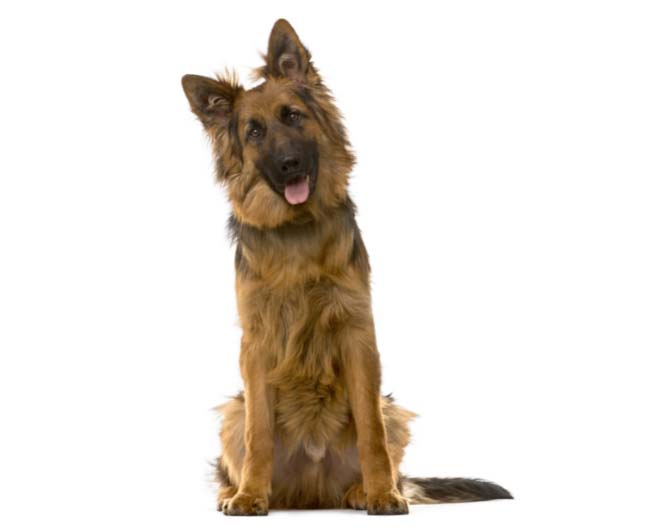
$750.00 - $1500.00
German Shepherd Dog Alsatian wolf dog Berger Allemand Deutscher Schferhund
Large
Herding Group
Long
Extra high
Extra high
12 to 14 years

Would you like to know what it would cost to insure an German Shepherd? Find out by getting a free quote, with petsy pet insurance.





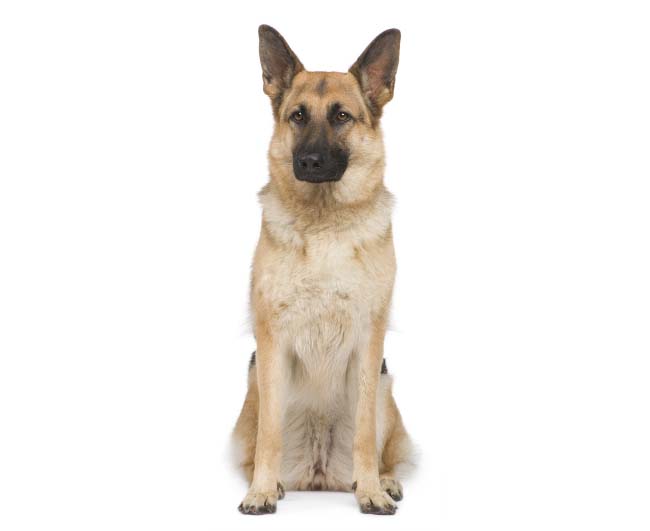


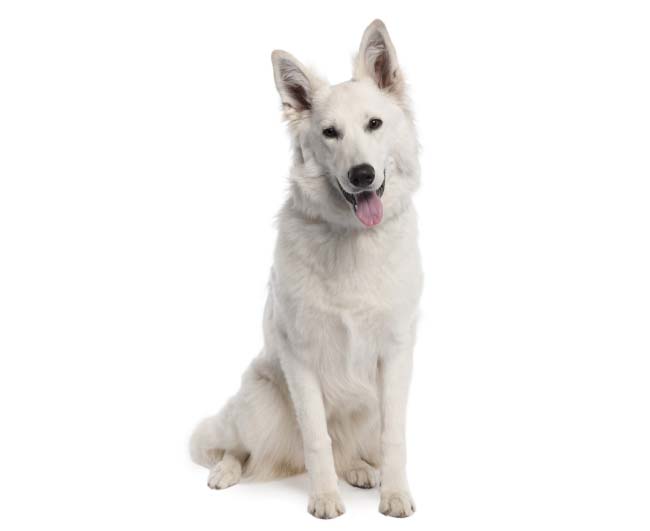
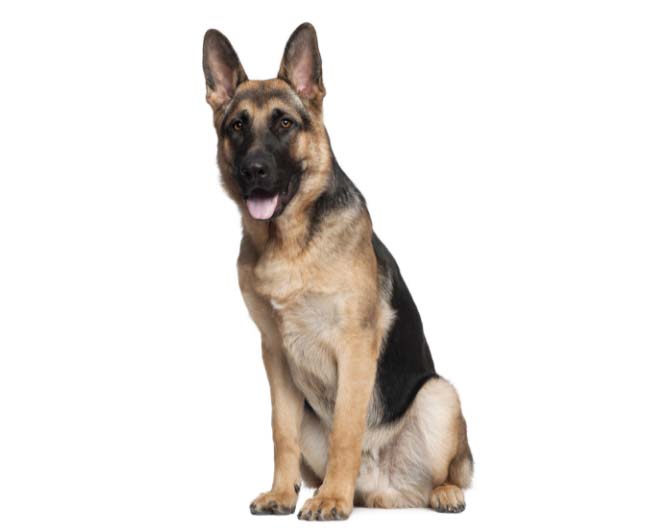
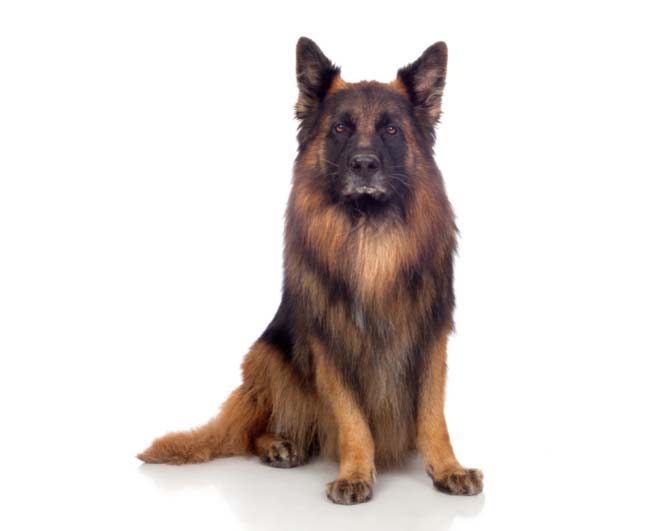
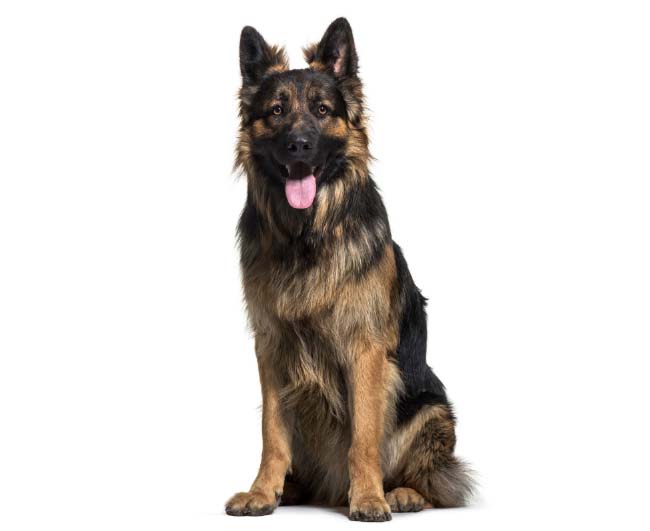
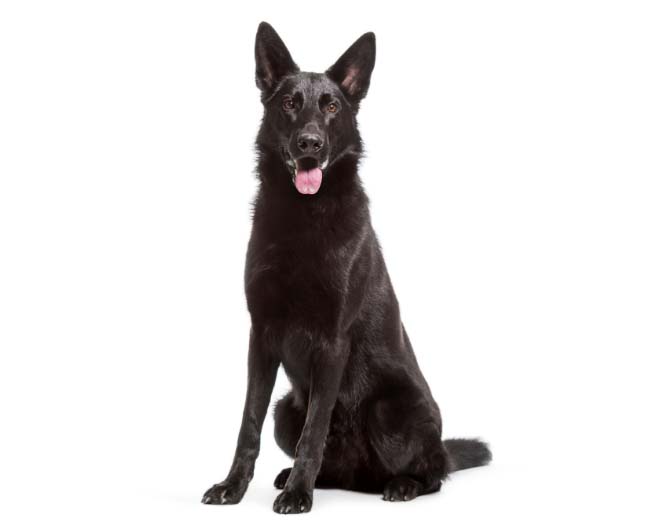
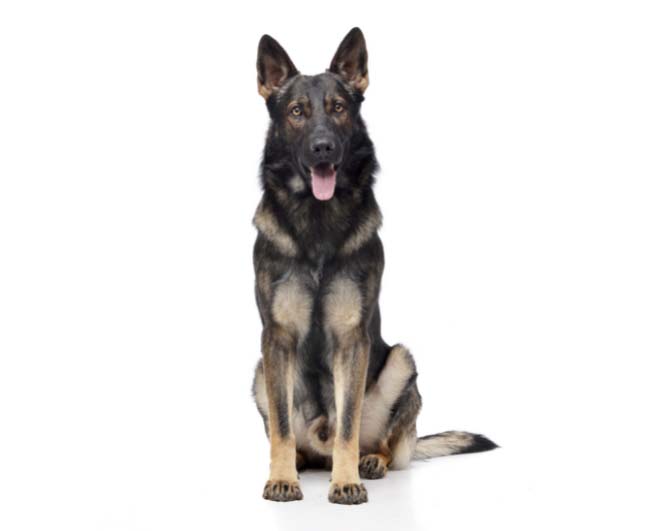
German Shepherd come in a variety of colours, including Liver, Cream, White, Light Sable, Black and Red Long Coated GSD, Dark Sable, Black, Black and Cream.


How much do
German Shepherd eat?
2.00 to 3.00 cups of food a day

How much
exercise do they need?
30 to 45 Mins

Are they kid friendly? Yes, a German Shepherd is child-friendly and enjoys children when properly socialized and trained

Do they need a lot of space? They can still live in smaller homes or apartments as long as their daily needs are met
Patellar Luxation
Legg-Perthes Disease
Hip Dysplasia
Heart murmurs
A German Shepherd Dog diet should be formulated for a large-sized breed with high energy and exercise needs. Generally, they are recommended to have 3 to 4 cups of high-quality food, divided into two meals. Consult with your veterinary specialist or a dog nutritionist to learn the correct nutritional balance your pet needs throughout its different life stages.
Clean, fresh water should always be available.
The German Shepherd Dog has a medium-length, double coat consisting of a dense, harsh, and close-lying outer coat with a softer undercoat.
The breed is easy to maintain, usually requiring just a quick brushing every few days to help remove loose hairs, but they do shed more heavily once or twice a year. During these periods, more frequent brushing will help control the amount of hair around the house and on the furniture.
Keep them clean and healthy by grooming them for a relatively minimal time. Grooming encourages the development of fresh hair and distributes skin oils in the coat, keeping it secure. German Shepherd only needs an occasional bath.
Bathing your German Shepherd too often strips his coat of oils that keep it healthy, so start running the bathwater only if he really needs it. It shouldn't be that often - despite their notoriety as a shedder, the German Shepherd tends to be fairly clean and odourless.
Also, make sure you check your dog's ears once a week for dirt, redness, or any bad odour that may indicate an infection.
German Shepherd is a high-energy dog who needs a lot of activity and exercise. Without it, they're likely to express their boredom and frustration in ways you may not like, such as barking and chewing. Daily exercise, both physical (such as jogging and frisbee) and mental (such as training sessions), is a must. Participating in canine activities such as agility, herding, tracking, and dock diving provides excellent physical and mental exercise and is fun and rewarding for both dog and owner.
Like all large dog breeds and some smaller breeds, the German Shepherd commonly suffers from Hip Dysplasia. Ensure that you monitor your dog's weight and address any overweight issues early.
Their health and well-being can be ensured by scheduling regular visits to their veterinarian. Schedule a visit to the vet at least twice a year, or if needed, based on your individual dog. During these appointments, the veterinarian can do a physical inspection and monitor your dog's health.
Discuss any questions or concerns you have with your veterinarian, as this forms an important aspect of the prevention process.
The German Shepherd personality is aloof but not usually aggressive. They're easy-going and approachable with their family, but when threatened, they can be strong and protective, making them excellent watchdogs. German Shepherds are usually extremely bonded to their people, so they are the happiest when living with his family. Loyal, confident, courageous, and steady, the German Shepherd is truly a dog lover's delight.
Their intelligence, obedience, and trainability have led the German Shepherd to become one of the most adaptable and versatile dog breeds. They are often employed in military, search & rescue and police roles.
They?re amazingly versatile, excelling at most anything they?re trained to do: guide and assistance work for the handicapped, police and military service, herding, search and rescue, drug detection, competitive obedience.
Consistency and positive, reward-based training will yield excellent results.
German Shepherds tend to get along well with domestic pets such as dogs and cats. However, early and proper socialization training helps ensure that they will tolerate each other. Generally, they are affectionate towards everyone, and they can easily adapt to their new environment and the people within it.
Here are some of the breeders who we work with as part of our breeder awareness program.
They are invested in ensuring the longevity of the breed and that new owner become responsible Affenpinchers owners.
Affenpinchers who are friends of Petsy





Enter your email in the form below and we will send you the full report as a pdf directly to your inbox.
Don’t worry, we hate spam too – read our privacy policy
Find the right level of insurance for your needs our customised quote takes less than a few minutes to complete.
A German Shepherd Dog diet should be formulated for a large-sized breed with high energy and exercise needs. Generally, they are recommended to have 3 to 4 cups of high-quality food, divided into two meals. Consult with your veterinary specialist or a dog nutritionist to learn the correct nutritional balance your pet needs throughout its different life stages.
Clean, fresh water should always be available.
German Shepherd is a high-energy dog who needs a lot of activity and exercise. Without it, they're likely to express their boredom and frustration in ways you may not like, such as barking and chewing. Daily exercise, both physical (such as jogging and frisbee) and mental (such as training sessions), is a must. Participating in canine activities such as agility, herding, tracking, and dock diving provides excellent physical and mental exercise and is fun and rewarding for both dog and owner.
The German Shepherd personality is aloof but not usually aggressive. They're easy-going and approachable with their family, but when threatened, they can be strong and protective, making them excellent watchdogs. German Shepherds are usually extremely bonded to their people, so they are the happiest when living with his family. Loyal, confident, courageous, and steady, the German Shepherd is truly a dog lover's delight.
German Shepherds tend to get along well with domestic pets such as dogs and cats. However, early and proper socialization training helps ensure that they will tolerate each other. Generally, they are affectionate towards everyone, and they can easily adapt to their new environment and the people within it.
Suite 58, Mezzanine/388 George St, Sydney NSW 2000
Petsy Pty Ltd (ABN 54 633 343 058, AR 1277359) (‘Petsy’) distributes and promotes Petsy Pet Protection Plus (formally Petsy Pet Insurance), Petsy Puppy Protection Plus and Petsy Kitten Protection Plus as an authorised representative of Knose Financial Services Pty Ltd (ABN 38 620 795 735, AFSL 536651) trading as ThePetInsuranceCompany.com.au (‘ThePetInsuranceCompany.com.au’). ThePetInsuranceCompany.com.au is an underwriting agency acting under a binding authority as an agent for the insurer; Pacific International Insurance Pty Limited (ABN 83 169 311 193) (‘Pacific) in relation to Petsy Puppy Protection Plus and Petsy Kitten Protection Plus policies and Petsy Pet Protection Plus policies from 01 March 2023 or have an anniversary renewal date from 18 March 2023, and the Australia branch of Allied World Assurance Company, Ltd (ABN 54 163 304 907) (‘Allied World’) in relation to Petsy Pet Insurance policies purchased between 17 February 2022 and 28 February 2023 (inclusive) or renewed between 01 March 2023 and 17 March 2023 (inclusive). In all aspects of arranging this product, Petsy and ThePetInsuranceCompany.com.au act as an agent of Pacific/Allied World (as the case may be) and not as your agent. Any advice contained in this email is general advice only and has been prepared without taking into account individual objectives, financial situation or needs and you should consider the appropriateness of any such advice, the Product Disclosure Statement (‘PDS’) and the Target Market Determination (‘TMD’) available via http://www.petsy.com.au or by calling 1300 952 790 before making a decision to acquire, or to continue to hold, the product. Terms, conditions, limits and exclusions apply. Please refer to the PDS.
© Copyright 2024 Petsy Pet Insurance
During the application process You will be provided with the option to include Optional Extra Benefits that cover certain conditions and Treatments which are not otherwise covered under the Policy.
The Optional Extra Benefits are:
Alternative Therapies, Behavioural Problems, and Dental Illness.
Examples of Alternative Therapies: Acupuncture, physiotherapy, hydrotherapy
Examples of Behavioural Problems: Excessive licking, fur pulling, pacing and destructive
chewing.
Examples of Dental Illnesses: Dental diseases, gingivitis, periodontal disease.